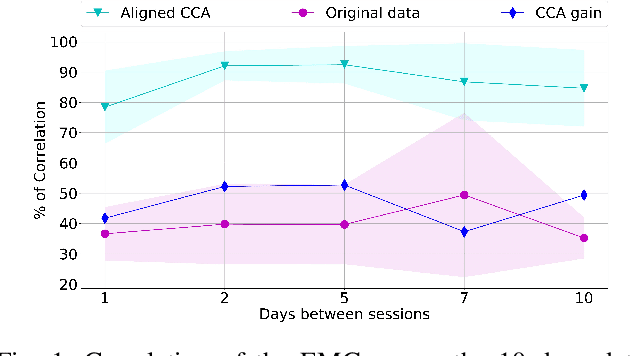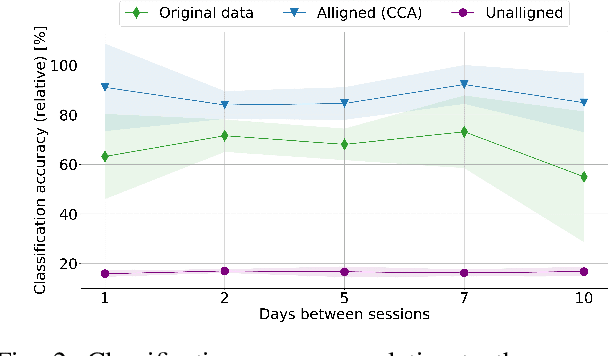Long-term stable Electromyography classification using Canonical Correlation Analysis
Paper and Code
Jan 23, 2023


Discrimination of hand gestures based on the decoding of surface electromyography (sEMG) signals is a well-establish approach for controlling prosthetic devices and for Human-Machine Interfaces (HMI). However, despite the promising results achieved by this approach in well-controlled experimental conditions, its deployment in long-term real-world application scenarios is still hindered by several challenges. One of the most critical challenges is maintaining high EMG data classification performance across multiple days without retraining the decoding system. The drop in performance is mostly due to the high EMG variability caused by electrodes shift, muscle artifacts, fatigue, user adaptation, or skin-electrode interfacing issues. Here we propose a novel statistical method based on canonical correlation analysis (CCA) that stabilizes EMG classification performance across multiple days for long-term control of prosthetic devices. We show how CCA can dramatically decrease the performance drop of standard classifiers observed across days, by maximizing the correlation among multiple-day acquisition data sets. Our results show how the performance of a classifier trained on EMG data acquired only of the first day of the experiment maintains 90% relative accuracy across multiple days, compensating for the EMG data variability that occurs over long-term periods, using the CCA transformation on data obtained from a small number of gestures. This approach eliminates the need for large data sets and multiple or periodic training sessions, which currently hamper the usability of conventional pattern recognition based approaches
 Add to Chrome
Add to Chrome Add to Firefox
Add to Firefox Add to Edge
Add to Edge